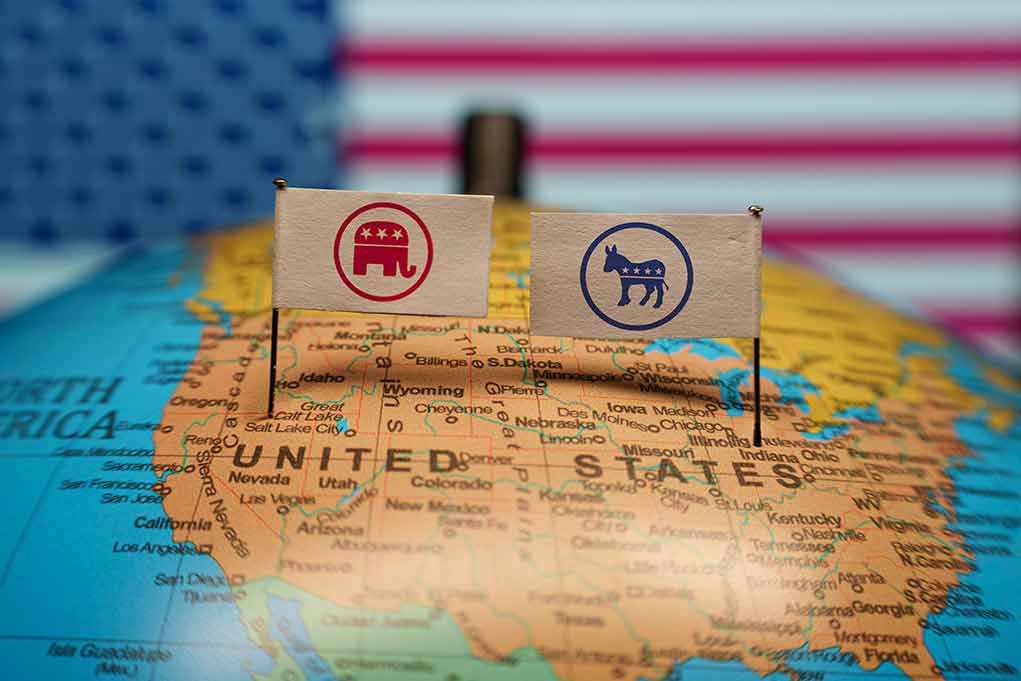
Democrats celebrate as a former GOP leader abandons his post and crosses party lines in Georgia, raising questions about party loyalty and the direction of American politics.
Story Snapshot
- Geoff Duncan, former Georgia lieutenant governor, leaves GOP for Democratic Party after public expulsion by state Republicans.
- Duncan cites opposition to Trump’s influence and GOP’s recent direction as core reasons for his switch.
- Georgia’s political landscape faces new turbulence as moderates and independents watch party realignment unfold.
- Duncan’s move highlights challenges for conservatives defending traditional values amid ongoing ideological battles.
Duncan’s Defection: A Blow to Party Unity
Geoff Duncan, who served as Georgia’s lieutenant governor from 2019 to 2023, announced in August 2025 his departure from the Republican Party to join the Democrats. This move follows his highly public expulsion by the Georgia GOP earlier in the year after a long history of criticizing Donald Trump’s leadership and direction of the party. Duncan’s break is one of the most prominent examples in recent memory, signaling a deeper rift within Georgia’s Republican ranks and reflecting national trends where party loyalty is being tested by ideological battles.
Duncan’s opposition to Trump’s 2020 election claims and his subsequent refusal to seek re-election in 2022 set him on a collision course with party leaders. Throughout 2024, he campaigned against Trump’s return to the White House, even endorsing Kamala Harris for president while still registered as a Republican. The Georgia GOP’s executive committee responded by passing a resolution to expel him in January 2025—a public rebuke that further solidified Duncan’s image as a critic of Trump-aligned orthodoxy. His official switch to the Democratic Party in August, announced through an Atlanta Journal-Constitution op-ed, marks the culmination of years of growing estrangement.
Shifting Political Ground in a Battleground State
Georgia’s recent status as a battleground state has intensified scrutiny on party allegiance and the cost of crossing political lines. Historically, party switching in Georgia has been common—especially in the 1990s and early 2000s—but usually from Democrat to Republican as the state shifted rightward. In recent years, however, politicians who change affiliation have struggled to win over their new party’s base. Duncan’s case stands out because of his high profile and his willingness to publicly oppose both the party establishment and Trump himself. This realignment comes as both parties vie for support from moderates and independents, whose votes are crucial in close statewide races.
For conservative voters frustrated by what they see as leftist agendas and government overreach, Duncan’s move is a stark reminder of ongoing efforts to undermine party unity. His criticism of Trump and embrace of the Democratic Party will likely be viewed as a betrayal of core conservative principles, especially as the nation debates issues like fiscal responsibility, border security, and constitutional rights. The Democratic Party, meanwhile, hopes to leverage Duncan’s profile to appeal to disaffected Republicans and centrist voters, possibly shifting the balance in future elections.
Party Power Dynamics and Future Implications
Duncan’s defection underscores the internal enforcement of ideological conformity within the GOP and highlights the risks for moderates in an increasingly polarized environment. The expulsion decision by the Georgia GOP executive committee was largely symbolic but signaled an uncompromising stance on party loyalty. Duncan’s move to the Democratic Party may encourage other moderates to reconsider their affiliations, but history shows that party switchers often face skepticism from their new colleagues and voters alike. The long-term impact on Georgia’s political landscape remains uncertain, as both parties recalibrate their strategies ahead of critical elections.
Good Luck with that move LMFAO. Former Georgia Lt. Gov. Geoff Duncan abandons GOP to join Democratic Party https://t.co/6BgQ1xK4OE
— August West (@west93233) August 7, 2025
Expert analysis points to the mixed results of party switching in Georgia. While some view Duncan’s decision as principled and courageous, others see it as opportunistic or unlikely to reshape the broader political environment. Political scientists note the symbolic importance of such defections in battleground states, where even minor shifts in support can have outsized effects. Duncan’s future ambitions remain unclear, but his move has already sparked debate about the meaning of party loyalty, the limits of ideological diversity, and the pressures facing moderate politicians in today’s climate.
Sources:
Once a rising GOP star, Geoff Duncan charts his course to the Democratic Party
Georgia party switchers face mixed results. Can Geoff Duncan change that?
Former Georgia Lt. Gov. Geoff Duncan switches from Republican to Democrat
Former Georgia Lt. Gov. Geoff Duncan abandons GOP to join Democratic Party












